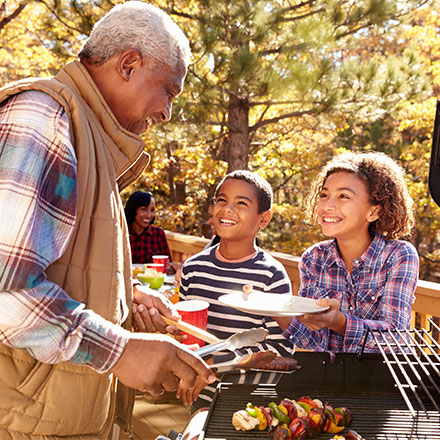You can start collecting your CPP and OAS benefits in your early 60s. But is it better to hold off for another few years? Here’s what to keep in mind before you tap into these pensions.
Why do common-law couples need an estate plan?
Provincial laws treat unmarried couples differently when it comes to inheritance and estate planning. Here’s how you can secure your finances while in a common-law relationship.

You and your partner are looking forward to your “happily ever after” together. But have you planned for exactly what that future looks like?
Nowadays, not everyone wants to get married. 47% of people surveyed in a 2018 Angus Reid poll found it important for couples to get legally married. On the other hand, 53% surveyed said that marriage wasn’t necessary.
More couples are choosing a common-law relationship. Typically, for tax purposes, that means partners who have lived together for at least one year. But not all relationships are equal under the law – especially estate law.
“That’s why common-law couples must invest in estate planning,” says Peter Pearson, a Sun Life Financial advisor.
Your estate includes your assets. An asset can be anything you own that has financial value like a home, a car or an investment. Estate planning means making plans for the transfer of your assets after you die. Think of it as a “Who gets what?” scenario.
(However, please note: If you have assets in an insurance plan, then those won’t have to go through your estate after you die. Instead, they’ll go directly to your named beneficiaries.)
“Having a plan in place can prevent financial surprises and setbacks if your partner dies or if there’s a separation,” adds Pearson.
What is a common-law relationship?
Before diving into estate planning, consider how the law in your province treats common-law couples.
Each province has their own definition for a common-law relationship. British Columbia, Newfoundland, Saskatchewan and Nova Scotia consider a couple common law after they’ve lived together for two years. It’s three years for couples in Manitoba, Ontario, Prince Edward Island, Alberta and New Brunswick. That term is less if the couple has a child together.
In B.C., Pearson says common-law couples have the same rights as married couples. So when someone dies intestate (meaning if they die without a will), then their partner gets a share of their estate.
Quebec doesn’t recognize common-law relationships when it comes to estates. The famous Lola case established that common-law couples don’t have the same rights as married couples.
With all of these considerations in mind, it’s important for common-law couples to create an estate plan.
Why common-law couples need an estate plan
Even when couples are forgoing marriage, they’re still buying assets together during their relationship. So it’s essential to consider what happens to those assets, especially if one partner dies. For example, in Ontario there’s no guarantee that you will inherit anything from your partner if they die without a will.
It’s a good idea to have a plan in place in case of illness or a loss of cognitive or physical functions. And it’s key to have a power of attorney provision in place. A power of attorney allows someone else to make financial or health decisions on your behalf.
Here are some things to consider when putting together your estate plan as a common-law couple:
1. Buying a home together
Thinking of buying a home with your common-law partner? If only one partner is listed as the owner (and that person dies), then it may cause problems for the surviving partner. Why? Because the home doesn’t automatically transfer over to the common-law partner. To avoid this, you can set it down in your will that your partner will get the home after you die. Or, when buying a home, you can register the title as joint owners. This way, you can ensure that you both have ownership of the home.
- How much does it cost to own a home?
- Buying a home: What happens after your offer is accepted
- Buying a house? Why you need life insurance
2. Registered and non-registered savings plans
When you open a tax-free savings account (TFSA) or registered retirement savings plan (RRSP), you’ll name a beneficiary or successor holder. Having a beneficiary establishes who will get your plans after you die. For example, they can choose to move the money from your plan into their own if they have the contribution room. Or they can choose to withdraw money from the plan and pay taxes on it.
Do you or your partner have a locked-in retirement account (LIRA) or a pension? Locked-in usually means you can’t withdraw funds until you retire or turn a specific age. For locked-in plans, the pension laws in your province specifies who gets it when you die. Usually, it’s the current spouse or common-law partner.
If you have any non-registered savings plans, you can only name a beneficiary if the plan is part of an insurance product. In such cases, the plan will bypass the estate and go directly to your beneficiary.
- What’s the best way to leave your TFSA to your spouse?
- 6 really useful things you can do with your TFSA
- 6 things you may not know you can do with your RRSP
3. Kids from a previous marriage
A will is the best way to ensure kids from a previous marriage receive an inheritance. It also ensures your surviving partner is financially taken care of if you die. That’s assuming if you have enough to leave behind for your loved ones.
If there’s no will, the law in your province determines who inherits what. According to Hull & Hull Barristers, a surviving spouse may get the first $200,000 of the estate. If there’s a child, the law can divide the rest of the estate between the surviving spouse and child. Because the law defines spouse as someone who was married, that could apply to partner’s ex. That can leave your common-law partner out in the cold.
If you’re in a common-law relationship, it’s critical to take the time to create and update your estate plan. It’s not only a way to take care of yourself, but it ensures your partner and children are taken care of when you’re gone.
- Need help getting started? Talk to an advisor near you about estate planning.
Read more:


